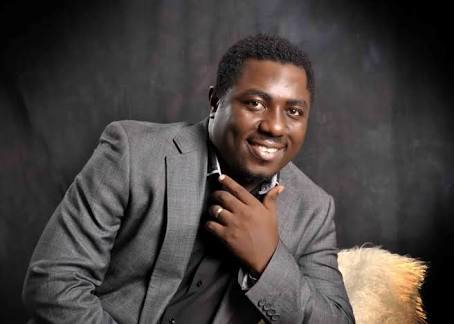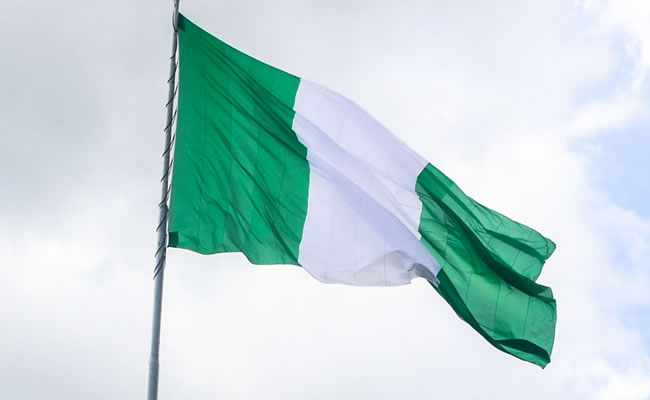Enough Is Enough….

In one of the comments made about the late Chief of Staff to the President, Abba Kyari – who was also accused in the media of corruption, he was quoted as saying that the Buhari government expended a lot more energy on preventing people from being corrupt than it should, because of the peculiar nature of Nigeria’s elites. This statement could have been waved aside. But when viewed against the recent statement by Festus Keyamo, Minister of State for Labour that he would resign if politicians hijack the 774,000 job opportunities promised by the Buhari government, then the reality of the situation becomes clearer.
It is also instructive that corporate Nigerians’ huge donations for COVID-19 palliatives, were quickly put under the care of Gen. Theophilus Yakubu Danjuma (rtd). Their distrust of people in government to use the funds judiciously speaks volumes about Nigeria. A country, whose senate has been unable to confirm the head of its Economic and Financial Crimes Commission, EFCC, leaves much to be desired in terms of probity and accountability. This is because an unsuitable anti-corruption boss should have been asked out, instead of being tolerated scornfully.
Nigerians who have travelled abroad, even to neighbouring African countries like Togo and Benin Republic are treated with distrust on first contact. There is a silent code in the international community that stigmatises even the best from Nigeria. Unfortunately, Nigerians have also not been helpful to themselves. It is commonplace knowledge that appointment into high office in Nigeria is usually followed by wealth. Public officers become billionaires overnight at the expense of service to the masses and tax payers’ funds.
Despite privatising electricity, small scale industries and the masses still do not have power supply. Despite the huge budgets for water supply, there are no consistent running taps. Someone can steal billions meant for retirees and proudly spread news around that part of the money was used in electing a sitting president!
Monies for healthcare programmes are stolen; donations towards uplifting the lives of children in orphanages, and the ones in poor communities are stolen. A few bad eggs among Nigerians steal from the dead, the retired, the working class and young ones, and buy high political and corporate positions. Many hopeless youth, who see all these wrong approaches to wealth acquisition and multiplication, take to drugs trafficking or advanced fee fraud, aka 419, and sell a terrible brand imprint of Nigeria to the global community. Leaders that sing the mantra of anti-corruption end up revealing incapacity due to inability to put culprits in jail.
Nigerians have continued to ask what the popular Abacha loot will be used for. Preposterously, one of the countries making refunds also asked Nigeria to state what it would use some of the stolen Abacha loot for, as a precondition to releasing the money in tranches. So battered is our image as a people that we really need to re-examine our values before an implosion occurs.
Nigeria requests for, and accepts loans from all international lenders that offer them, under the fallacious assumption that these loans will be paid and that it is not wrong to owe. The adage that lenders are slaves does not guide the thinking of Nigeria’s leaders at all levels. As the Federal Government is accepting and seeking loans, many state governments are applying for so-called development loans despite not being able to properly service the ones previously collected. Nigeria should count how many loans China, which has given her loans, has requested or collected in the last decade.
As the Senate gives approval to the Federal Government to take another loan towards repairing the damage caused by COVID-19 to the economy, Nigerians should, even against the thinking of their leaders, begin to insist that enough is enough in terms of collection of loans.
In one of the comments made about the late Chief of Staff to the President, Abba Kyari – who was also accused of corruption in the media, he was quoted as saying that the Buhari government expended a lot more energy on preventing people from being corrupt than it should, in executing projects and programmes. This story would have easily been waved aside. But when viewed against the recent statement by Festus Keyamo, Minister of State for Labour that he would resign if politicians hijack the 774,000 job opportunities promised by the Buhari government, then the reality of the situation becomes clearer.
It is also instructive that corporate Nigerians’ huge donations for COVID-19 palliatives we’re quickly put under the guidance of Gen. Theophilus Yakubu Danjuma (rtd). Their distrust of people in government to use the funds judiciously speaks volumes about Nigeria. A country, whose senate has been unable to confirm the head of its Economic and Financial Crimes Commission (EFCC), leaves much to be desired in terms of probity and accountability.
Nigerians that have travelled abroad, even to neighbouring African countries like Togo and Benin Republic are treated with distrust on first contact. There is a silent code in the international community that stigmatises even the best from Nigeria.
Unfortunately, Nigerians have also not been too helpful to themselves. It is commonplace knowledge that appointment into high office in Nigeria is usually followed by a farewell to an average financial status. Public officers become billionaires overnight at the expense of service to the masses.
Despite privatising electricity, small scale industries and the masses still do not have power supply. Despite the huge budgets for water supply, there are no consistent running taps. Someone can steal billions meant for retirees and proudly spread news around that part of the money was used in electing a sitting president! Monies for healthcare programmes are stolen; donations towards uplifting the lives of children in orphanages, and the ones in poor communities are stolen. A few bad eggs among Nigerians steal from the dead, the retired, the working class and young ones, and buy high political and corporate positions. Hopeless youth, who see all these wrong approaches to wealth creation and multiplication, take to drugs trafficking or advanced fee fraud, aka 419, and sell a terrible brand impression of Nigeria to the global community. Leaders that sing the mantra of anti-corruption end up revealing incapacity due to inability to put culprits in jail.
Nigerians have continued to ask what the popular Abacha loot will be used for. Preposterously, one of the countries making refunds asked Nigeria to state what it would use some of the stolen Abacha loot for, as a precondition to releasing the money in tranches. So battered is our image as a people that we really need to wake re-examine our values before an implosion occurs.
Nigeria requests for, and accepts loans from all international lenders that offer them, under the fallacious assumption that these loans will be paid, and that it is not wrong to owe. The adage that lenders are slaves does not guide the thinking of Nigeria’s leaders at all levels. As the federal government is accepting and seeking loans, many state governments are applying for so-called developmental loans despite not being able to properly service the ones previously collected. Nigeria should count how many loans China, which has given her loans, has, riding on her back.
As the Senate gives approval to the Federal Government to collect another loan towards repairing the damage caused by COVID-19 to the economy, Nigerians should, even against the thinking of their leaders, begin to insist that enough is enough in terms of loans.








